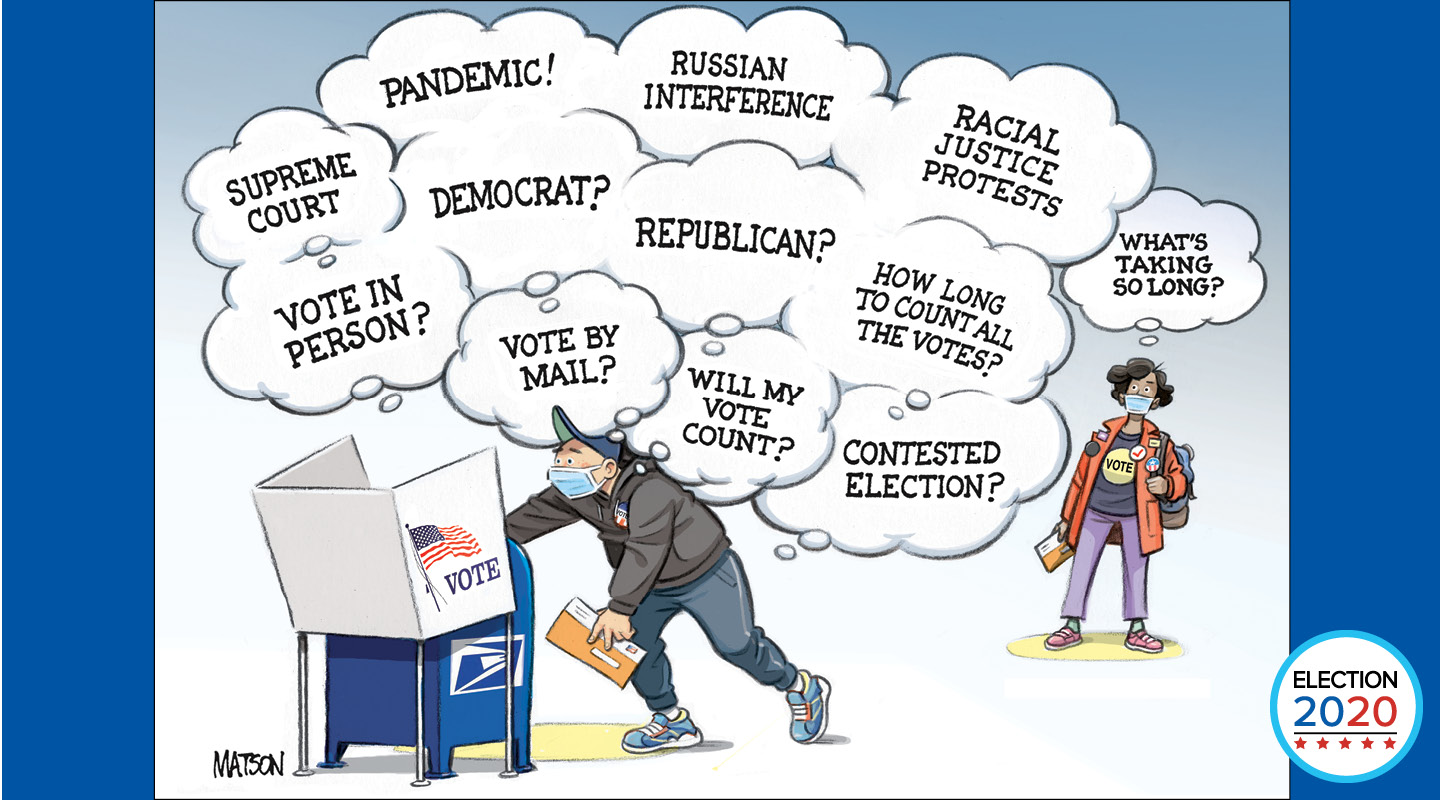Rarely, if ever, have Americans voted in a presidential election under such volatile circumstances.
That’s the assessment of experts who cite voting amid a pandemic, more ballots being cast by mail than ever before, and a sitting president who has spent the months leading up to the election raising doubt about the process and whether he’ll accept the results.
“Everything involving this election is different,” says Larry Sabato, director of the Center for Politics at the University of Virginia. “It’s not only unprecedented, it’s worrying.”
Since the Covid-19 pandemic turned the country upside down in March, election officials in many states have rushed to change rules and adapt voting procedures to make them safer. Many states have moved to make it easier to vote by mail, while also figuring out how to make in-person voting on November 3 safe, says Nate Persily of the Healthy Elections Project.
An enormous effort is underway to move polling locations—many of which have traditionally been set up in schools, nursing homes, and retirement communities—to safer places. Since most poll workers are over 60 and more vulnerable to Covid-19, a new legion of younger poll workers has had to be recruited. And election officials have had to buy enormous quantities of hand sanitizer, masks, and other equipment to keep officials and voters safe.
In nine states, ballots were being automatically mailed to all registered voters. In nine other states, voters are automatically receiving applications to request mail-in ballots. And in 36 states, voters can use the coronavirus as a reason to get an absentee ballot.

